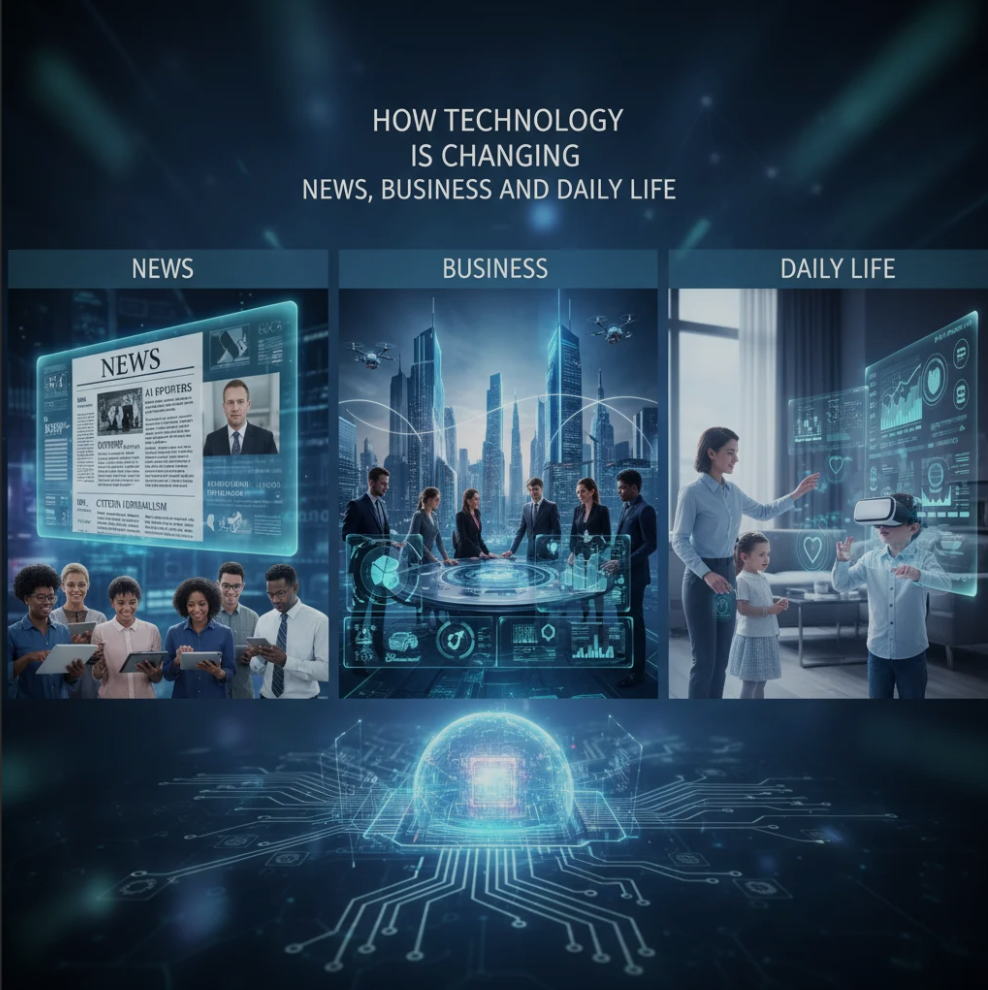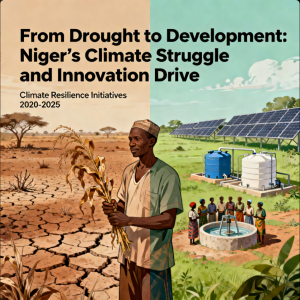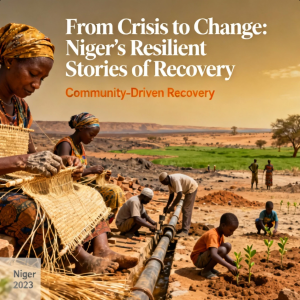Niger is undergoing a quiet but powerful digital revolution. What once seemed like distant technological change has now become part of everyday life — from how people get their news to how businesses operate. In 2025, technology is no longer a luxury in Niger. It is a necessity, reshaping the economy, culture, and social connections.
Let’s explore how digital transformation is influencing the country across multiple sectors.
📰 1. A New Era of Digital News and Information
For decades, radio dominated local news in Niger. Today, smartphones and social platforms are transforming how information spreads.
What’s changing:
- Facebook, WhatsApp, and TikTok have become primary news sources.
- Local journalists are using mobile reporting to publish faster and more accurately.
- Independent online media outlets bring regional stories from outside Niamey into the spotlight.
- Citizens are engaging more through discussions, comments, and live streams.
Digital tools are making information more accessible, though also raising concerns about misinformation — a challenge seen across Africa and the world.
💼 2. Digital Business Is Growing Fast
Small shops, artisans, and entrepreneurs across Niger are using technology to modernize their operations.
Key trends:
- Mobile money (Airtel Money, Moov Money) now fuels everyday transactions.
- Entrepreneurs run businesses via Instagram, Facebook Marketplace, and TikTok Shop.
- SMEs use digital payment tools to manage sales and reduce cash dependency.
- E-commerce is emerging, especially in Niamey, Zinder, and Maradi.
Digitalization has opened new opportunities for youth and women entrepreneurs, helping them reach customers far beyond their neighborhoods.
📚 3. Education Goes Online — Slowly but Surely
While digital education is still developing, significant progress is being made.
What’s improving:
- Students access lessons through YouTube, educational apps, and online tutoring.
- Schools and universities are introducing e-learning platforms.
- NGOs and international partnerships provide training in digital skills, coding, and online research.
- Many youths learn practical skills independently, including graphic design, video editing, and online freelancing.
Digital learning is creating new paths for career development — especially for young people seeking remote jobs.
🏥 4. Technology Is Transforming Healthcare Access
Telemedicine and digital health solutions are making progress in urban and rural communities.
Growing developments:
- Teleconsultations between doctors and patients via WhatsApp and mobile apps.
- Health campaigns delivered through SMS and social media.
- Digital health records in pilot hospitals and clinics.
- Drones and digital maps supporting vaccination and supply routes.
Technology is helping bridge the gap between remote regions and major hospitals.
📱 5. Smartphones: The Heart of Digital Life
Affordable Android phones have become the most important digital tool in Niger.
People use their phones for:
- Messaging and communication
- Mobile banking
- Business promotion
- Learning and research
- Streaming entertainment
- Accessing government updates and services
For many Nigeriens, smartphones are not just devices — they are tools for opportunity.
🚧 6. Challenges Slowing Digital Growth
Despite progress, Niger still faces barriers that impact its digital expansion.
The major obstacles:
- Limited and expensive internet access
- Low digital literacy in rural communities
- Power shortages affecting device usage
- Lack of infrastructure in remote areas
- Cybersecurity concerns
- Language limitations for French- or Hausa-dominant speakers
But each challenge also creates opportunities for local innovators to build solutions tailored to Niger’s needs.
🌐 7. Government and Private Sector Pushing the Digital Agenda
Efforts to support digital transformation include:
- Investments in internet infrastructure
- Youth tech hubs and innovation centers
- Digital ID programs
- Online government platforms
- Startup incubation programs
These initiatives are laying the foundation for a more connected, digital-first economy.
🌟 Final Thoughts: A Digital Future Taking Shape
Niger’s digital transformation is still in its early stages, but the impact is already visible. Technology is improving news access, empowering businesses, modernizing education, and changing the rhythm of daily life.
What makes Niger’s digital rise unique is its grassroots nature — led by young people, entrepreneurs, and everyday smartphone users who are shaping the country’s future one tap at a time.
The next decade will reveal just how far Niger can go in building a vibrant, inclusive digital economy.




